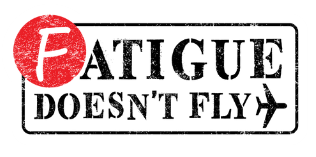
FATIGUE DOESN’T FLY
Support Rest & Fatigue Regulations for Cabin Crew
Cabin crew members are crucial to aviation safety, yet they lack the same rest and fatigue regulations as pilots. Most Commonwealth countries, including Sierra Leone, Bangladesh, and the United Kingdom have Flight Time Limitations (FTLs) to protect their cabin crew. Despite years of advocacy and clear evidence of the health impacts of fatigue, the Civil Aviation Safety Authority (CASA) has not implemented these essential regulations in Australia. We only want what cabin crew all over the world have.
Support fair and necessary regulations for our cabin crew.
“Fatigue is the asbestos of aviation; invisible but deadly. We must act now to protect our cabin crew and, by extension, our passengers”
Teri O’Toole
Federal Secretary, FAAA
“Cabin crew regularly give first aid, CPR, security vigilance, and of course we have passenger management and other safety/regulatory duties every day including CRM and situational awareness. That performance (on a daily basis) is affected by fatigue, we know that the first two abilities to degrade when fatigued are decision making and communication.”
Kris Major
EASA Flight Time Limitations Trainer
“I am aware of members at some airlines commonly working five or six days in a row with four sectors each day, which is incredibly exhausting.”
“By the end of the week, your body feels completely drained, and it's hard to stay alert and focused. The workload is intense, with barely any time to rest between flights. Fatigue can set in quickly, affecting both performance and overall well-being.”
Gareth Uren
Flight Attendant
Sign the Petition Today
Hear From Our Crew
Cabin crew are essential safety professionals responsible for managing emergencies, ensuring compliance with safety protocols, and providing first aid.
This International Cabin Crew Day, we’re talking about fatigue.
Key Issues
Impact of Fatigue
Fatigue impairs judgment, reaction times, and overall performance, potentially leading to critical safety incidents.
Chronic fatigue increases risks of severe health conditions, including cardiovascular disease and mental health issues.
Comparative Regulations
Pilots have rest regulations under Civil Aviation Order 48.1, but cabin crew do not have equivalent protections.
Most Commonwealth countries have implemented flight time limitations (FTLs) for cabin crew, but Australia lags behind.
Economic Impact
Major Australian airlines report significant profits, yet fatigue management for cabin crew remains neglected.
Qantas Group: FY23 profit before tax of $2.47 billion.
Virgin Australia: FY23 statutory NPAT of $129 million.
Rex: FY23 statutory profit after tax of A$14.4 million.
Health and Well-Being
Cabin crew often experience high workloads, insufficient rest, irregular hours, and inappropriate rest facilitates, each of which contribute to fatigue and stress.
Studies have shown that being awake for 17 hours can have the same effect as having a blood alcohol content level of 0.05%.
Share the Campaign
Share a photo of yourself with our campaign flyer
Step 1: Download and Print the flyer
Step 2: Take a photo with the flyer
Step 3: Share the photo on your socials, outlining in your own words why this campaign is important. Make sure to use the following hashtags and our website URL:
#fatiguedoesntfly #CASA #cabincrewday
https://fatiguedoesntfly.com.au/
Share one of our graphics
Step 1: Download one of the graphics
Step 2: Share the graphic on your socials, outlining in your own words why this campaign is important. Make sure to use the following hashtags and our website URL:
#fatiguedoesntfly #CASA #cabincrewday
https://fatiguedoesntfly.com.au/













